With a pair of gold records under his belt and a new album, something is definitely happening for Mr Jones
Kelvin Jones is a highly sought-after young musician. Having released his debut Stop The Moment in 2017, a hunger for new material continues to grow. Following numerous euphoric, unforgettable live shows around the UK and Europe, the talented songwriter recently announced plans to release his anticipated second album in 2020.
Known for his infectious, popular style of writing, and connecting with masses of people, the Zimbabwean-born, UK-raised, Berlin-based musician has established his name and reputation with instant, crowd-pleasing songs like Call You Home, Closer and Lights On. The future looks more than promising for Jones.
But behind what may appear to be a smooth and uncomplicated process lies creative complexity, long hours of intensive work, persistence and confidence in knowing when something is just right.
Songwriting recently caught up with Kelvin to gain fresh insight into how he likes to work, what the process tends to be, quality assurance and influences…
Call You Home is your most popular track to date, talk us through the writing process?
“I had just started university. I had come home for Christmas. It was something instinctive rather than a skill. It was finished in the middle of the night. I’m 24 now, I wrote it when I was 19. I remember being madly in love with this girl and feeling alone. I was studying, but felt like I just wanted to play guitar and make music. One night I was just sat there and I kept on singing “Can I Call You Home”. I kept on repeating that line like a mantra for thirty minutes.
“I’ve heard other songwriters describe this like a bubble they don’t wanna burst. You try to stay in this almost trance of whatever the emotion of the song is, you don’t want to fall out of that vibe. I was singing, just knowing that whatever it was it connected me to this emotion, this other place, that I can’t describe. I came up with the rest of the chorus, I wrote the verses and finished everything within an hour and a half. It was one of those very quick ones.”
Can you trace the influences back to an artist or sound?
“I’m too close to the puzzle to solve it. People tell me it sounds like something, but I don’t hear it. For the songs that I love the most, I rarely hear anyone else. I’m a huge fan of John Mayer, so I think it’s got that vibe. But people who like country, folk or pop think it sounds like that.
“I’m convinced that it does sound like John Mayer, and people that I was listening to at that time, because that’s what happens when you are starting out as a writer and musician, you wear your influences on your sleeve. I don’t shy away from that, I am the confluence of those things – the blues, the pop, Oasis and John Mayer.”
You grew up listening to Oasis, how do you see their influence on your music?
“It was the first music that I understood without being a musician, it made sense to me, everything about their music. It was like, ‘So this is when the chorus comes,’ that would be when it came. I understood how these songs were written, the thing that’s almost magical when it comes to songwriting. I tend to be impressed by a song that I could have written, somebody else writes it and I go, ‘Oh my goodness, that is so obvious, how did I not see that?’
“It blows me away when somebody uses ‘my’ four, five, six chords and some amazing melody that no one else has ever thought of. All these super-jazzy chords, an augmented ninth or whatever; I’m more impressed than emotionally taken back, it doesn’t touch my heart. I try to go for something that makes me feel something, whether it’s impressive or not doesn’t really factor into it.”
Do you have a favourite Oasis song?
“An Oasis fan probably wouldn’t call me an Oasis fan. I go for the hits. I have listened to so many of their albums, but what stands out to me are the hits, I can hear why the hits are the hits. It’s like when you sing Cher’s Believe, I get why that’s a hit. The standard ones that everybody loves, I absolutely get why they are hits, so I’m a greatest hits Oasis fan. I love Noel Gallagher’s new releases, I love the singles, the experimental stuff, the more introverted. I adore the big hit songs, I just connect with all of them. They connect with all of us.”
And how about John Mayer?
“I have a favourite of my lifetime, it’s a song called Slow Dancing In A Burning Room. This has been my favourite since I found out about him. I was 16, it remains my favourite song and it’s what I describe as a kind of 1+1 type of situation where I can play and sing the song, I understand everything about it. But there is something missing for me.
“I get the 1+1, but I don’t get the equals, there is a magic to understand about that song that makes it special to me. I love that I don’t quite understand it. It’s like loving a certain colour. Obviously, he is an amazing guitarist, which is a big reason why I admire him, but in terms of songwriting… that song and a few others, they have a special place in my heart.”
What were your experiences when starting out as a songwriter?
“I had to fight to get over it when people don’t yet know who you are or what you are capable of. You want to impress, but want to show them, ‘Look I know these chords, how to solo and how to write a complicated song,’ because if you do something simple, people think maybe you are simple. But I’ve been fortunate enough to have two gold records, the songs work on radio and connect with masses of people, I have the confidence to go, ‘You know what, I don’t need to impress you,’ it matters way more if my song is a part of your life than something that’s seen as rather impressive.”
Please talk us through how you wrote your single Seventeen?
“It feels like it should have been written years ago. It’s one of those where after writing it, I was like ‘Has no one done this?’ It’s like when we first heard 7 Years by Lukas Graham. My song is from an odd perspective. I’m not reminiscing, wishing I was 17 years old, but there are things about being 17 that I want to keep alive, that’s what the chorus refers to.
“I’m lost in memories and I’ve got a song that brings me back again. I want to bring back the passion of how I was when I was younger, but still be myself and enjoy everything about growing up. That’s what the song is, I’m really proud of it.”
That’s an interesting idea for a song. What approach did you take when selecting the chords?
“I’m a fan of glasses, but I only really like one look. I always figured I can never be a designer because I would only ever design the same thing. This is the issue I have in songwriting, there are certain chords that move me. If you look at Nashville numbers, like a four-chord song, there’s a certain melody that just moves me more than any songs with one chord, it’s been this way for five years. The chorus starts on a four chord, on an A, then goes to a C sharp minor and then a B.
“It’s been my challenge for the last five years to find ways to use those chords and make it sound like a new song and to find other chords and substitutes that work. I love big choir vocals, how to use them in a way that isn’t obvious or repetitive.
“Like Ed Sheeran says, ‘You’ve gotta open the tap and let the dirty water out.’ For the album I’m releasing early next year around March/April I have written about 150 songs, that’s the only way I can guarantee having great songs. Sometimes you go through a run of bad songs, there will be songs in different keys, different tempos whatever and different chords. I go for quantity first and then I get picky about the ones I end up using.”
That’s a prolific number! From speaking to bands, most musicians say that they have 30 or 40 songs ready for an album…
“For my first album, I wrote 40 songs. I like a third of the songs now, after a while you move on, you change and your new project is always the most exciting one. A few of them could stand the test of time, Call You Home being one of them. Even this year I’ve had many people telling me they’ve used the song for their wedding etc. There are definitely songs that I can write that I’ll be proud of for being a stamp in time or a classic.
“My first album had experimenting. One of the songs I wrote entirely on the bass, and I had never done that before, it’s always guitar or piano. It was amazing, I’ve not been able to replicate that again since. My bass skills are limited, but it was one of the most fun writing experiences I’ve ever had.”
How did you go about selecting the tracks for your second album?
“The songs pick themselves. Everyone likes the song they have written for about a day or two, it’s your favourite song and then the truth reveals itself on day three when you listen to the demo. It’s something most musicians do not have the luxury of, I just play the songs that I have written, even if they’re not released because I want to see how it feels to sing the songs.
“With most of the new ones, I’ve tried them live. With Seventeen I played it a few times, and there was an influx of, ‘When is it all coming out?’ It felt amazing to play it live. That’s what bands used to do in the 1960s, tour an album and then record it. I still maintain that way of doing it.”
To what extent do you adhere to principals of music theory in songwriting?
“I can’t say it’s not about the musical theory, I know some music theory has helped me in terms of communicating things. It’s like if you’re speaking a language, the more words that you know the more precise you can be about what you want to say. That’s the way I look at it.
“So if you only know major chords, it’s harder to say anything sad. If you know the minor chords, but don’t want to be completely sad, there’s a minor 7 chord, now you’re getting more precise about what it is exactly you’re saying. Music theory has helped me in that sense, it’s helped me to communicate with other musicians what I want to do, what I try to get across to the producers.
“The biggest thing for me in terms of improving is two things. One has been writing a lot of songs that just hone your skills. There’s a talent to it, not just anyone can write a song. My brother asked me about how I know if a melody is right. You sort of half-know, there’s something in you that just says, ‘That’s the right melody, that’s the right line,’ and you go for it. If you have the instinct in you, have trained it enough, you may be lucky enough that other people agree and feel the same way.”
And the other?
“The other part has been playing live. I’ve been touring so much. It’s the people who listen to the songs. You write for yourself, but there’s something about going out to play the songs live, you start to know what feels good, what moments in a song feel great. It’s like, ‘Oh my goodness here, where the lyric did this, or where the melody went here and the crowd’s response.’
“The first time I heard people sing Call You Home back at me about four years ago was special. I was playing at a festival to 5,000 people, who were singing and finishing the chorus. There’s another song that I wrote, As You Wake Up. I didn’t expect people to connect to this level, but when I play it at my shows it’s one of the songs where everyone sings every lyric. It’s a very honest expression.”
Which song are you most proud to have written and how do you measure quality?
“It’s a song called Cry A Little Less, due to come out in the UK and Europe early January. I wrote it at my parents’ place in my tiny studio on my midi piano with the lights low, dimmed down. As soon as I finished the song I listened back about 10 times with my eyes closed. I sang it thinking this might be the best thing that I’ve done because of how honest it is.
“The lyric of the chorus is, ‘Every time we say goodbye I cry a little less / and every night that you walk away it hurts a little more but I cry a little less.’ I was almost afraid to say those things, it felt too honest, but I think this is the way to go.
“When I finished that song I toured and played it in arenas, it’s my most requested song. People ask about when it’s coming out, I get messages every day about it. I’m aware that the thing I trusted when I wrote it was right, that feeling that there’s something special. When you have more of those experiences, it shows you as a songwriter, it’s like, ‘I know when it’s right and when it’s not right, I can sense that.’ That’s when you know that you’re
onto something.”



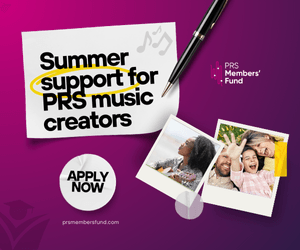
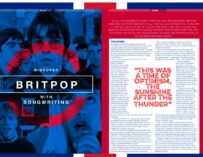
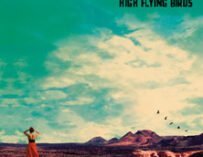

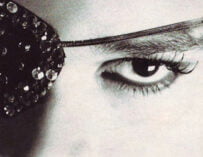
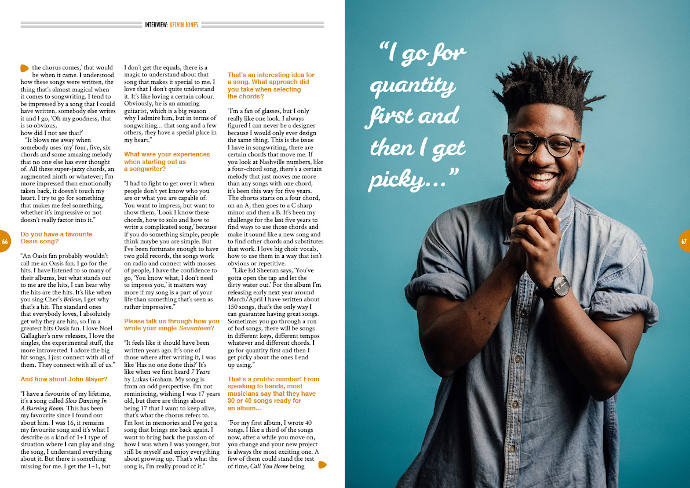

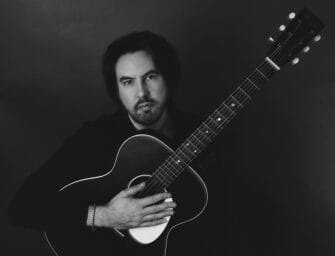
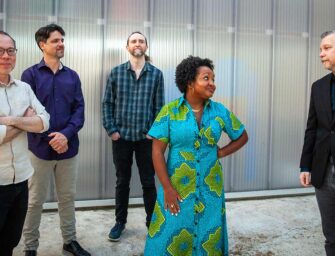


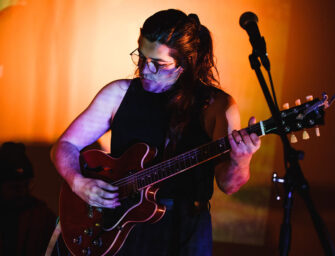





















Related Articles